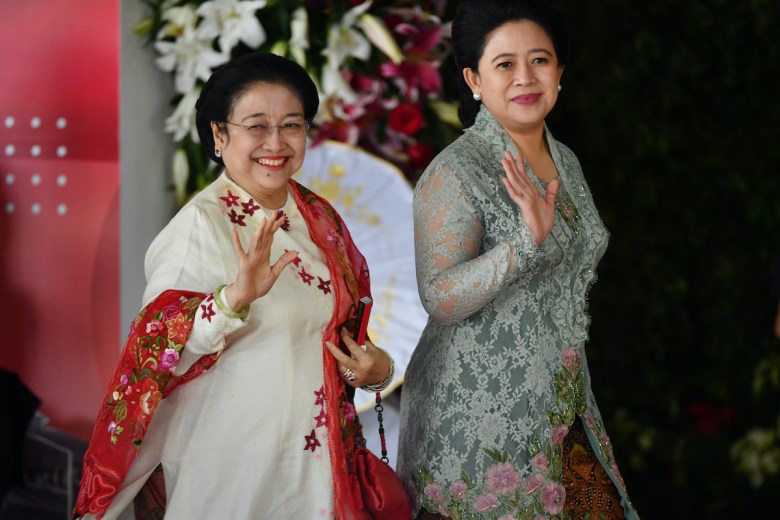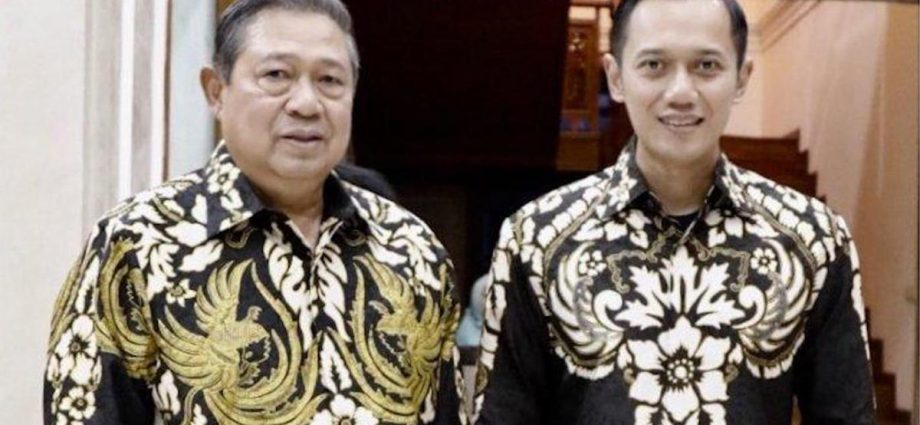JAKARTA – President Joko Widodo, better known as Jokowi, rode to victory eight years ago on the strength of his common-man image, the first of Indonesia’s seven presidents to come from the heartlands of Java instead of the ranks of Jakarta’s civilian and military elite.
Still polling at 71%, a result most world leaders would die for, and with a solid portfolio of achievement behind him, the former furniture-maker has all the while retained the common touch, albeit showing he is more than a match for any politician in the capital’s shark pool.
Now he risks losing that iconic status by trying to engineer a dynasty through two of his three sons, Solo city mayor Gibran Rakabuming, 35, who occupies the post that launched his father’s career, and his younger brother Kaesang Pangarep, 28, who is being groomed to replace him.
That’s not all. Widodo’s Sumatran son-in-law, Muhammad Bobby Nasution, 31, is mayor of the north Sumatran capital of Medan, the country’s fourth biggest city, a position the hometown boy will hold until 2026 following his election in 2021.
Rakabuming now has his eyes set on the governorship of Central Java, the country’s second most populous province, which charismatic incumbent Ganjar Pranowo will vacate when he makes an expected run for the presidency next year.
Such was his popularity, Jokowi went straight from the mayoralty to governor of Jakarta in a single step in 2012, a remarkable achievement for someone from the sticks. But he was 51 at the time. His son is younger and needs a lot more experience. Father won’t always be there.
Defense Minister Prabowo Subianto, who perhaps to his regret played no small part in helping Widodo win the governorship, recently journeyed to Solo to offer some advice to Rakabuming. Many saw it as an effort to curry favor with the president whose endorsement will mean something in 2024 when Prabowo is expected to run for a third time.
Widodo’s decision to include his rival in the post-2019 Cabinet was a master stroke and Prabowo has lived up to that trust by acting as an adviser on strategic affairs to a man who has been on a steep learning curve in international relations.
Pangrarep has been reaching out as well. Just recently he met with PDI-P leader Megawati Sukarnoputri in a bid to secure the party’s backing for his first venture into politics in 2024, despite the uneasy relationship that exists between the matriarch and his father.
As with Central Java itself, PDI-P has long been the largest party in Solo, gaining 60% of the vote in the 2019 elections and winning 30 of the 45 seats in the local parliament. Rakabuming won by an 83% landslide in the 2020 district election.
Dynasties are not unknown in Indonesia. Look no further than Megawati, daughter of founding president Sukarno who retains an iron grip on PDI-P and takes the perpetuation of her father’s nationalist ideology as her life’s work.

Her daughter, Puan Maharani, 49, is parliament speaker and a presidential aspirant, though her lowly poll numbers show that a new generation of voters is not as enamored with the Sukarno name as their elders.
A survey by the Nagara Institute in 2020 found there were 124 candidates for regional heads who were the wives, husbands, children, relatives or relatives of incumbent officials in the central or regional governments.
But perhaps the only enduring dynasty at the regional level most researchers point to is in the west Java province of Banten, where the family of former governor – and convicted corruption felon – Ratu Atut Chosiyah, 60, controls five of the eight districts.
While dynasties may persist, it is not the phenomenon it is in the Philippines where 73 out of the 81 provinces harbor at least two dominant political families who have a historic lock on mayoralties, governorships and congressional seats.
The difference doesn’t end there. Philippine dynasties survive through patronage, economic dependency and even violence. In Indonesia, nepotism to secure party nomination and name recognition to amass popular votes are the important factors.
A 2019 survey found 61% of respondents were opposed to dynasties, a view borne out when two sons and a daughter all failed to succeed their fathers as governors of West Kalimantan, East Kalimantan and South Sumatra.
Whether Widodo’s two Singapore-educated sons, both small businessmen like their father, prove to be an exception will be determined after he steps away from power and how long his influence last after that.
Rakabuming, who talks much like Jokowi, told an Indonesian television interviewer before the 2020 local elections that he made his own choices. “There was no order, no pushing,” he said. “I feel I am ready. I want to be of use to the people.”

Another figure from Indonesia’s post-independence years, former economic guru Soemitro Djojohadikusumo, had pictured his eldest son, Prabowo, now 71, as a future president with his younger son, Hashim Djojohadikusumo, 68, the financier behind him.
Next year, Prabowo is expected to make his third bid for the presidency, but with two younger and stronger candidates ranged against him, he may only be in the race to boost the prospects of his Great Indonesia Movement Party (Gerindra) in the simultaneous legislative elections.
The political career of Hashim’s impressive daughter, Saraswati, 37, took a hit in 2020 when she left a safe legislative seat in Central Java to contest the mayoralty of South Tangerang on Jakarta’s western outskirts, ultimately losing to a member of Banten’s dominant Chosiyah clan – despite her running mate being Vice-President Ma’ruf Amin’s daughter.
Kept in the game by her uncle, the trained actress is now vice-chairperson of his Gerindra party, which is polling a surprising second to PDI-P in the latest Indonesian Survey Institute (LSI) survey, largely because of the Prabowo name.
Ex-president Susilo Bambang Yudhoyono, a retired general and former chief security minister, did some damage to himself by initially trying to mix religion and populism in trying to create a family dynasty that has met so far with only limited success.
As founder and chairman of the Democrat Party, he initially saw his eldest son, Agus Harimurti, now 44, as the soldier-statesman and his younger son, Edhie Baskoro, 42, as a future political leader – similar in many ways to the ambitious Djojohadikusumos.
But with a messy private life, Edhie couldn’t cut the mustard, leaving the elder Yudhoyono to call an abrupt end to Harimurti’s promising military career and throw him into a tumultuous three-way contest for governor of Jakarta in 2017.
He came last in a race marked by mass Islamist protests that saw the rise of former education minister Anies Baswedan and the ouster of ethnic-Chinese incumbent Basuki “Ahok” Purnama, who was subsequently jailed for blasphemy.

It isn’t clear whether ex-premier Yudhoyono was the driving force behind the effort to perpetuate his name, or whether it was the late former first lady, Kristiani Harimurti, the tough-minded daughter of the legendary general Sarwo Edhie Wibowo.
But analysts at the time questioned whether the elder Yudhoyono made a strategic error focusing on the negatives of Purnama’s blasphemy case, rather than playing to his son’s drawing power among Jakarta’s youth.
Interestingly, his own military career was terminated as well by president Abdurrahman Wahid who, instead of an anticipated promotion to army chief, appointed him mines and energy and later chief political minister in his short-lived 1999-2000 Cabinet.
The enforced career change took Yudhoyono by surprise, but to the fury of Megawati, Wahid’s successor, it was to set him on the path to seizing the presidency from the self-entitled incumbent four years later – something she has never forgotten or forgiven.
Agus is now seeking to revive his bid for higher leadership by setting himself up as the prospective running-mate to Baswedan, who is firming as the opposition candidate in 2024 in what would promise to be a highly competitive new-generation ticket.

